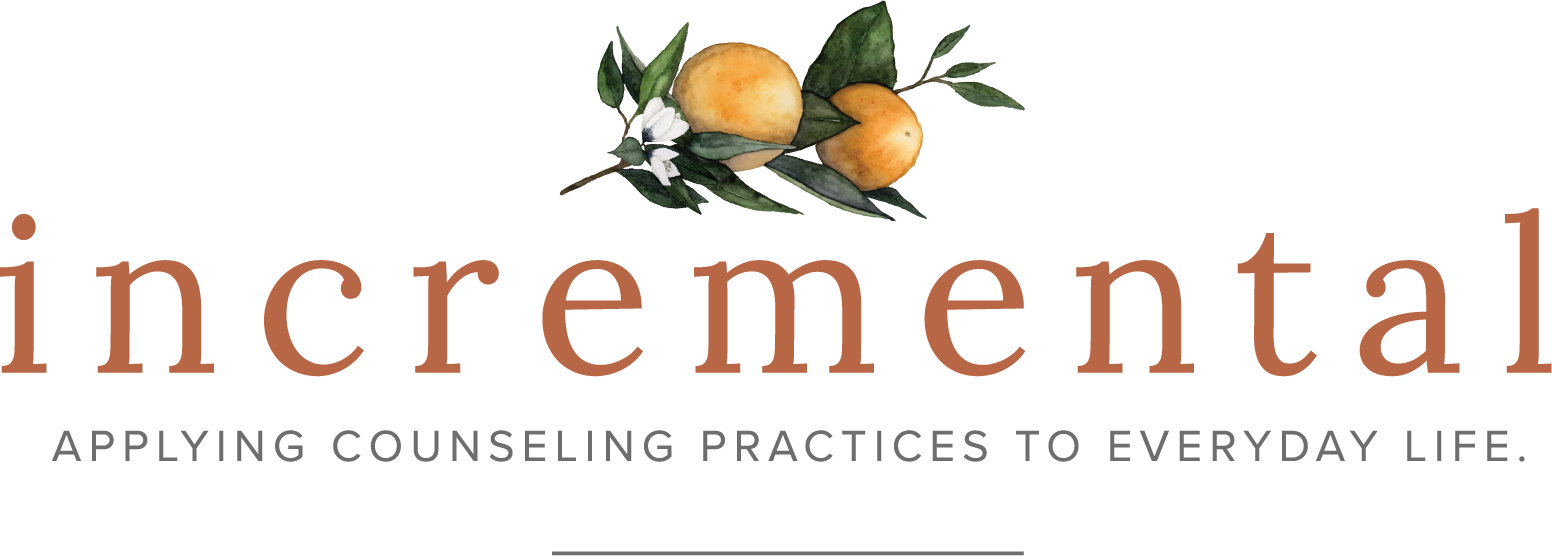When "Hang in There" Isn't Enough
I cannot count the number of times I've overheard conversations between friends, spouses, or coworkers that included some form of the phrase "hang in there." I've gotten: "Just keep holding on." "This too shall pass." "You'll learn something from this if you just keep going." "Be strong." "It'll be over soon." All these wonderful band-aids for a crisis, season of doubt, or uncertainty. These phrases communicate a trend that runs pretty rampant in our culture: SUPPRESS, SUPPRESS, SUPPRESS. And what kind of stupid, effing, ish is that? "It'll be okay" is a staple in our culture's language of "comforting" and relating to each other.
Perhaps my biggest beef with these phrases is they suggest something for people like me -- and maybe 80.098% of the population -- that's not even a little bit helpful. They suggest that we shouldn't do anything while we're suffering. We should just walk through a season of uncertainty and let it happen to us because eventually "it'll be okay," and "time heals all wounds" -- this one is truly #TheWorst.
I haven't written in over a month. My social media would suggest that life has been "ultra glam." But it's been kinda super sucky lately. A while ago, I wrote about my fear and anxiety around death and dying. I thought I was on the up and up. Turns out, I wasn't. I knew I wanted to write about this season of ups and downs, doubt and fear, but I didn't know how to reconcile everything I was going through into a blog post.
Then I had a session with my therapist. The ideas she was reflecting back to me -- suggestions she was making -- made sense, but at the moment it didn't feel like it was what I needed to process. Her hypothesis was that my existential crisis was a result of perpetual feelings of being overwhelmed and not knowing how to cope, and therefore dissociating -- kind of like having out-of-body experiences where you don't feel like you're "in" yourself. She thought that this process was causing me to get all nutty about the fact that one day the sun is going to explode. Her observations were logical and well-intentioned, it just wasn't what I was truly experiencing at the moment. I couldn't articulate what was truly going on or what I needed until I heard what it wasn't and what I didn't. Isn't it funny how that happens sometimes?
Coming from this perspective, it made sense that her suggestion was to practice mindfulness and distract myself from my existential line of thinking. However, what I really needed was to process where these thoughts were coming from and what was propagating me to keep thinking about these dark things. Now, let me be clear, there is a place for mindfulness, distraction techniques, and positive sentiments like "it'll be okay." But alone? With no additional direction? It can leave a person who has literally nothing left to distract with in dire straights. That's where I was.
The next day I decided that I didn't want to sit in the crisis and wait for my anxiety to eventually pass. I decided to take action. In doing so, I learned more about myself, the way I function in this world, and what I believed in -- more than at any other point in my life. So these suggestions are for those of you out there like me who want to take action in a season of awful, turd shenanigans and come out on the other end changed. Because you will come out on the other end. One way or another.
But, you likely already know that. This is why those sorts of sentiments don't usually need stating; it's too obvious. Taking actions like the ones below, however, might be a bit more helpful:
1. Explore
I took the season of intense anxiety and crippling doubt, and I chose to learn what these fears meant about me -- if anything. I learned that I had questions about my faith and belief system. Exploring these thoughts taught me I value logic a lot more than I thought I did. I always thought I was an emotional thinker and processor, but it turns out, that I operated in an emotional mindset more often than not because that's what I learned not what I needed.
So what does self-exploration look like? You can try new things that you've never tried before, like new types of clothes, a new hobby, or a new form of interacting with this world, like hiking, meditating, etc. Taking personality inventories and assessments is extremely helpful as well. They act as a compass for who you are when the social stressors aren't in play. For me, it looked like reading different books and listening to podcasts that stimulated the part of my brain I thought was defunct but really were just void of substance. I was repeatedly told that "thinking" about these cosmic things was bad for me or not helpful, so I just kept shushing that part of my brain. Releasing it is probably one of the best decisions I've made in my life.
2. Serve
Sometimes suffering or going through a rough patch in life provides the perfect opportunity for human connection with others. I heard this heartbreaking, beautiful story about this little girl who donated her ninth birthday to a clean water charity a month before she died. Her story went viral, and she ended up posthumously raising over a million dollars and serving 37,000 people with water. I decided to donate for my birthday, too. As a result, I've gotten to see the hearts of others in their generosity and feel like I'm doing something worthwhile with the anxiety and doubt I was struggling with.
We all experience pain and true suffering at some point. If we can leverage that and walk with each other in solidarity, the potential for everlasting growth is palpable.
3. Letting Go
Finally, finding a system that you can believe in and lean on can help in times of struggle. I was feeling the burden of the entire world. I was consumed by people's lives and deaths to the point that it all became meaningless. Let me tell you, that's not a healthy way to live. When I realized -- truly realized -- that I could give that back, that it wasn't my true burden to bear, I felt a lot freer. For you, it might be giving it to the Universe, God, Allah, Buddha, or whatever -- just give it to something or someone! Realizing that the weight of the world wasn't actually on my shoulders and letting go of carrying others' burdens when they weren't mine to carry was incredibly freeing. Daily meditation and prayer reminded me that my responsibility is to do to others what I would like done to me. And that's it. I can advocate for injustices and help others through suffering, but I'm not responsible for the choices people make or the cosmic processes at play.
So next time you feel the urge to tell someone "it's okay to be okay," remember what it feels like when you try to put a band-aid on a really large wound. Instead, tell them that you're thinking about them. If they've tried helpful, mindfulness techniques to no avail, it might be time for them to think about talking to someone who can help them process the issue deeper.

